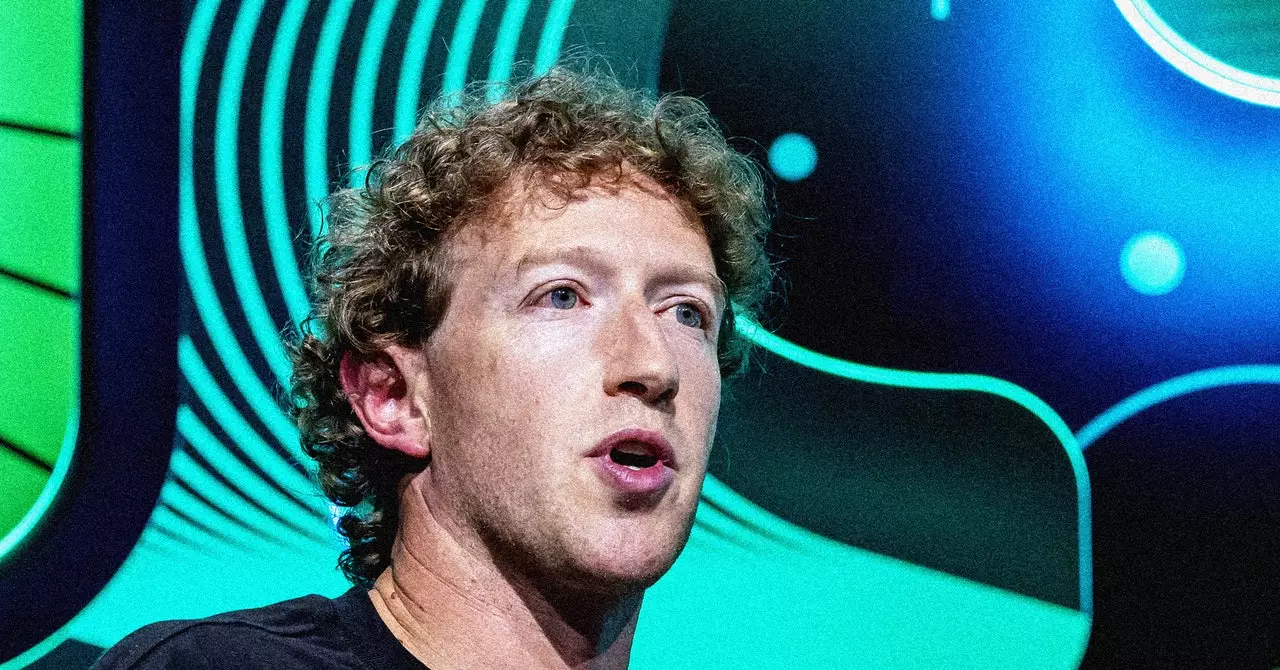In recent years, the policies governing social media platforms have faced intense scrutiny, but none perhaps as prominently as those of Facebook under its founder, Mark Zuckerberg. Once viewed as an avowed supporter of content moderation, Zuckerberg’s current perspective marks a significant and controversial departure from his earlier commitments. This article will explore Zuckerberg’s evolving stance on content moderation at Facebook, the implications of his recent policy changes, and the broader consequences for discourse and truth in the digital age.
The Transformation of Content Moderation at Facebook
Years ago, Mark Zuckerberg recognized the damage inflicted by disinformation and hate speech on Facebook’s platform. In a notable interview in April 2018, he laid out an ambitious plan that included hiring additional human moderators and leveraging artificial intelligence to combat harmful content. Zuckerberg expressed regret over the platform’s slow response to toxicity and acknowledged that a more proactive approach was necessary to foster a healthier online environment. This admission was not just an acknowledgment of a problem but a commitment to resolving it, even if it meant enduring substantial costs.
Fast forward to today, and Zuckerberg has taken a diametrically opposed stance. In a brief address, he characterized his previous commitments to content moderation as a capitulation to external pressures, especially from governmental influences concerning COVID-19 and other topics. This marks a distinct pivot away from his earlier philosophy; the focus on proactive takedowns and rigorous fact-checking is being replaced with a considerably laxer framework—one that favors “community notes” over expert verification. This shift points to a deeper ideological transformation, whereby rising populist sentiments and a re-engagement with free expression take precedence over the structured accountability that characterized his earlier vision.
The shift from traditional fact-checking mechanisms to community notes is particularly striking. In theory, community notes can provide valuable input from a diverse array of voices, but this method raises crucial concerns about reliability and bias. Unlike established fact-checkers, who often operate under a rigorous framework of evidence and verification, community notes rely on crowd-sourced opinions, which may not be grounded in factual accuracy. This is particularly problematic in addressing misinformation, as the quality of information disseminated can vary dramatically between credible contributions and outright fabrications.
Zuckerberg has implied that this change will facilitate greater free expression, but it raises the question of whether uninhibited expressions of misinformation could lead to a chaotic and divisive information landscape. The nuances lost in transitioning from a fact-based model to a subjective approach can exacerbate the very issues of misinformation and polarization that Zuckerberg previously sought to address. By diminishing the role of verified truth-tellers, the platform risks empowering voices that may prioritize sensationalism or falsehood over fact-based discourse.
A Cultural Shift and Its Consequences
This ideological shift also mirrors broader cultural transformations within the meta-ecosystem. Zuckerberg’s recent moves—like relocating content moderators to Texas and dissolving the company’s diversity initiatives—highlight a strategic alignment with prevailing political winds. By presenting such changes as efforts to alleviate perceived biases in moderation, he seems to diminish the credibility of journalistic integrity in favor of an increasingly fragmented approach to truth. This approach sends a troubling message: legacy journalism, rooted in investigative rigor and held accountable by ethical standards, is painted as an antagonist within this new paradigm.
Moreover, the implications extend beyond Facebook’s user base; they resonate with a larger cultural struggle against disinformation. When journalism is malignantly categorized alongside unfiltered opinions from influencers, the public’s ability to discern fact from fiction becomes increasingly compromised. Zuckerberg’s conflation of journalistic efforts with unmediated expressions contributes to a culture where fringe opinions can overshadow factual reporting.
As Zuckerberg continues to roll back measures intended to combat disinformation, the consequences are multifaceted and far-reaching. The shift towards a less moderated environment may lead to an increase in harmful rhetoric, hate speech, and misinformation. This presents an existential challenge: if social media platforms allow information to proliferate unchecked, segments of the public may increasingly turn to dangerous ideologies and polarizing narratives.
Ultimately, Zuckerberg’s decisions reflect a larger dilemma facing social media today: the balance between promoting free expression and ensuring accountable discourse. The question remains—can platforms harness the power of community engagement without succumbing to the abyss of unchecked misinformation? As Facebook navigates this precarious landscape, the world watches closely, hoping that the inherent complexities of promoting free expression do not undermine the foundational truths we depend upon as a society.

